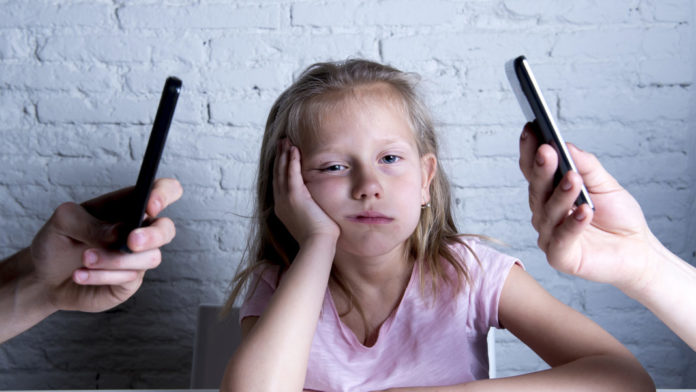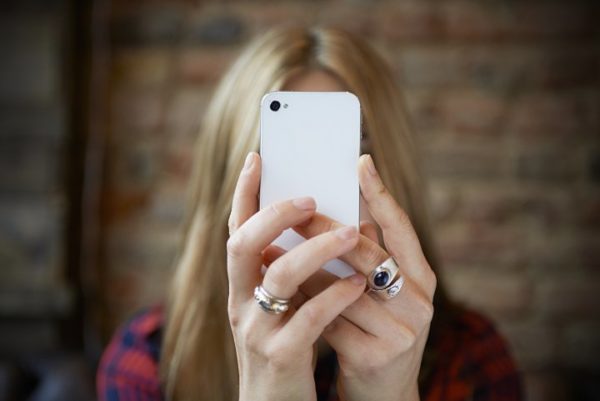
Technology is changing our lives. If those who died a century ago were to resurrect today, they would indeed be marveled by the giant progress we have made. This is simply because they didn’t see the technology we are using today. To them, the very thought of a flat touch screen was fiction.
However, we should make sure that the changes brought by technology better our lives rather than destroy them. It is true, that every change has its negatives and positives, but we should strive to have mainly the positives.
A new study in the U.K. has revealed that rampant use of smartphones by parents is destroying their relationships with their families, especially their children.
The study was carried out by Digital Awareness UK (DAUK), an online safety organization, and the Headmasters’ and Headmistresses’ Conference (HMC).
In order to get a clear picture of the problem being investigated, the researchers used secondary school pupils as respondents. 2, 000 pupils aged between 11 and 18 responded to the study.
According to the study, more than a third of the respondents said they had asked their parents to stop checking their devices. 14% said their parents were online during meal times.
Among the respondents, 82% felt meal times should be device-free. 22% said the use of smartphones stopped their families enjoying each other’s company. 36% had asked their parents to put down their phones.
Of pupils who had asked their parents to put down their phones, 46% said their parents took no notice while 44% felt upset and ignored. These pupils expressed frustration about the actions of their parents.
This is not the first time DAUK and HMC have teamed up to look at the effects of smartphone use on parents and pupils. In 2016, a study by the two bodies showed almost half of secondary pupils were checking their mobile phones after they had gone to bed. They warned that this was causing students to arrive late at school, and unable to concentrate during lessons.
In this new study, almost three-quarters of pupils (72%) admitted they were online between three and 10 hours a day. 11% said this could rise to 15 hours at weekends and holidays, while 3% said it could reach 20 hours.
The study revealed that the pupils’ greatest worry about their own online use was lack of sleep, with 47% highlighting it as a major concern.
Chairperson of the HMC, Mike Buchanan, said it was time for parents, teachers and pupils “to rewrite the rulebook” on the use of mobile devices, which have become an integral part of life at school, work and play.
“Our poll shows that children are aware of many of the risks associated with overuse of technology but they need the adults in their lives to set clear boundaries and role model sensible behavior. To achieve this, we need to join up the dots between school and home and give consistent advice,” Mr Buchanan said.
Co-founder of DAUK Emma Robertson also said the study is a wakeup call for parents to ensure that the use of technology doesn’t destroy their relationship with their families.
She was quoted as saying: “We hope these findings will be a wake-up call for families and motivate them to have serious conversations about the safe and healthy use of technology.”
Of course, indiscriminate use of smartphones is causing all sorts of problems in our society today. Smartphones are highly integrated with multiple functions. Even the photo functions of these devices are causing injuries and deaths.
The United States Department of Transportation estimates that during 2014, in the so-called “year of the selfie,” 33,000 people were injured while driving and using a cell-phone in some fashion, which included talking, listening, and “manual button/control actuation” including taking, uploading, downloading, editing, or opening of selfies. Also, a 2015 survey by Erie Insurance Group found that 4% of all drivers admitted to taking selfies with their phones while driving.
Again, The Washington Post reported in January 2016 that about half of at least 27 selfie deaths in 2015 had occurred in India. No official data on the number of people who died taking selfies in India exists, but reports show from 2014 up to August 2016, there have been at least 54 deaths in India while taking selfies.
In July 2016, a study by a team of researchers from Ajou University in South Korea revealed that more women are increasingly becoming addicted to smartphones, and that this is also impacting on their mental health.
This article (New Study Reveals Indiscriminate Smartphone Use by Parents Killing Family Life) is a free and open source. You have permission to republish this article under a Creative Commons license with attribution to the author and AnonHQ.com.
Supporting Anonymous’ Independent & Investigative News is important to us. Please, follow us on Twitter: Follow @AnonymousNewsHQ








